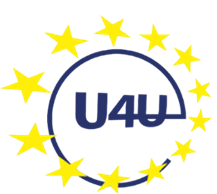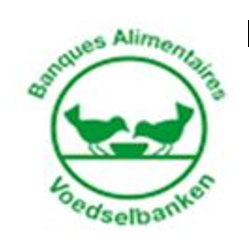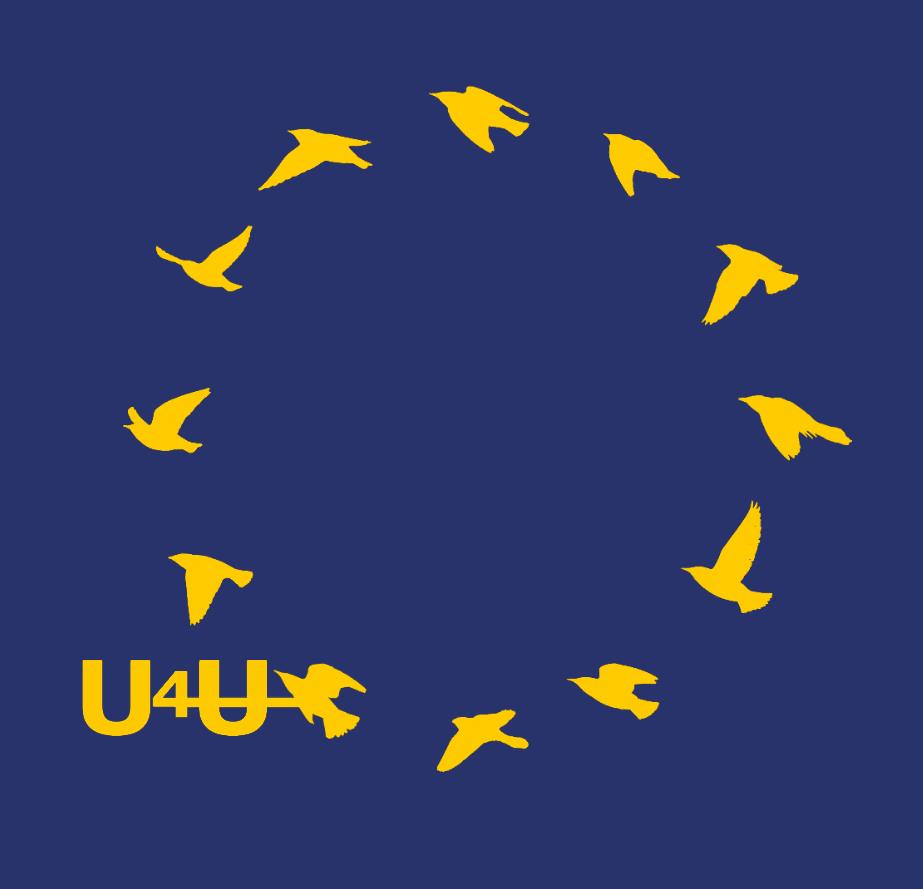Communication from the new U4U Governing Board
28 May 2024

The European Union faces growing threats both internally, with the rise of populism, and externally. It also faces heightened geopolitical tensions on its borders and beyond. Competition, even with its traditional allies, for access to scarce resources is also intensifying. It also faces the risk of structural economic and demographic decline. The trend towards a reduction in its growth potential, if not addressed in a timely and sufficient manner, will make it more difficult to finance social cohesion and thus increase the appeal of populist currents.
The European institutions are also having to deal with multiple crises without sufficient financial and human resources and without a genuine integration project to enable them to deal with them. This unprecedented situation inevitably puts pressure on the European civil service, which has to face these challenges by increasing the commitment of its staff, even though this commitment is not recognised and existing skills are not sufficiently valued and developed. On the contrary, we are witnessing an increased insecurity of staff tasks and even the outsourcing of functions, without any efficiency gains. This situation also generates heavy workloads which, in the absence of adequate planning and resources, have a direct impact on the health, well-being and motivation of staff.
In this uncertain context, our resolutely civic and pro-European trade union action must look to the future by rethinking our methods of intervention, adapting our frameworks for reflection, strengthening social dialogue and anticipating structural changes in the way we work. It is also essential that we remain aligned with our principles and values, which are our identity and, above all, the reason for our determined action.
*
* *
In the light of the above, the following considerations will guide our union’s actions in the future.
- The European budget is too weak to meet today’s challenges. It must be given substantial additional resources to guarantee its structural stability. Without a more significant budget, the European project is in jeopardy. We therefore call for the next multiannual financial framework to be more ambitious and, in particular, to provide the Commission with sufficient resources to enable it to operate effectively. We believe that budgetary control at national level must be accompanied by a significant increase in budgetary resources at EU level, thanks to new own resources and a substantial new loan at European level. We would like the institution to provide staff and their representatives with a formal framework, integrated into social dialogue procedures, in which they can express their views on the budgetary resources needed to implement a fair and ambitious human resources policy.
- The adoption of European budgetary rules (the Stability and Growth Pact) reduces the financial resources available to Member States to finance their investments and public services. The return of austerity will also have consequences for the next European budgetary framework. There is every reason to fear that some Member States will seek to impose budget cuts in operational expenditure or even call for the reopening of the Staff Regulations in order to attack social rights, salaries and pensions and the career prospects of staff. Taking stock of the two previous reforms, and in particular the Court of Auditors’ criticisms of the impact of the implementation of the 2014 reform on staff and on the capacity of the institutions, we are firmly opposed to a new reform of the Staff Regulations and to a reduced operating budget.
- We need strong trade union action on several fronts: for a new policy to reduce the precariousness of temporary and contract staff, through annual internal competitions and improved career prospects; for a new governance of regulatory and executive agencies, allowing for respect of the Staff Regulations, common rules and social dialogue; for greater reflection and consultation on hybrid work, the limits and potential of which are not sufficiently understood at present strengthening and developing the educational offer of European schools of all types, not only for the staff of the European civil service in the various places of work, but also because the model of these schools is both a factor of integration at European level and a factor of illustration outside the Union of our paradigm of “unity in diversity”; deepening the policy of inclusion and diversity in all its social, societal and cognitive dimensions.
- Social dialogue must be radically renewed in thelight of the experience of recent years. It has often led to deadlock, frustration and sometimes divisions between trade union forces. These divisions can only be overcome with concrete proposals that defend all workers in a united, non-corporatist way. Finally, we need to rethink social dialogue by promoting the right of workers to express themselves directly and collectively within a renewed and inclusive framework of governance.
- Our union’s civic engagement must be maintained and even strengthened with the active support of our members. In the spirit of European integration, we will promote employee participation in the 2024 elections, both at local and European level. We will continue to oppose populism and the far right, misinformation and conspiracy theories, identitarian withdrawal, racism, homophobia, gender discrimination and all forms of hate speech. We are also motivated by de facto solidarity with the oppressed. We will also encourage our members, as we already do, to take part in humanitarian solidarity actions with populations who are victims of war, terrorism, natural and climatic disasters or oppression of any kind.
- Finally, we will also prepare our campaign for the forthcoming elections for staff representatives at the Commission in Brussels and Luxembourg, the European Parliament, the European External Action Service, the Court of Auditors, the regulatory and executive agencies, etc. The aim is to increase U4U’s presence in the various workplaces of the European civil service.
In accordance with the mandate given to us by our last General Assembly, we will work towards greater organic integration within the “Rassemblement synodical” with our external partner, the USHU.
Finally, given the significant development of our organisation, particular attention will be paid to maintaining the cohesion and coherence of our organisation on the basis of the texts adopted by our General Assembly and the professional elections within the institutions.
| Members of the Governing Board (GB): Chairperson : Vlandas Georges (Commission Brussels) Vice-President : Caelen Yves (Commission Brussels) Secretary General : Soyer Jean-Paul (Eurocontrol Brussels) Deputy Secretary General & Secretary of the GB: Menéndez Vallina Annabelle (Commission Brussels) Treasurer: Gervaise Anne (Commission Brussels) Vice-President for the EU Parliament : Ortega Montero Carmen (EU Parliament Brussels) and Yavas Huseyin (EU Parliament Brussels) Vice-Presidents for the EEAS : Soret Bertrand (European External Action Service) and Viesner Frédérick (European External Action Service) Vice-President for all EU Regulatory Agencies : Schneider Gregor (EUIPO Regulatory Agency Alicante) Vice-President for the EU Executive Agencies : Wert Bertrand (Executive agency Brussels) Vice-Presidents for EU Regulatory Agencies: Carney Lucinda Jane (EUIPO Regulatory Agency Alicante ), Colinos Julien (EASA Regulatory Agency Köln), Wouters Paul (F4E Regulatory Agency Barcelona) Members : Alcaraz Fabienne (Commission Brussels), Amaducci Giulia (Commission Brussels), Auriol Karine (EU Parliament Brussels), Brites Nunes Margarida (Commission Luxembourg), Cruzado Vandenbergh Yoann (EU Parliament Brussels), Juan Linares Victor (Commission Brussels), Mairate Andrea (Commission Brussels), Rizza Graziella (Commission Brussels), Spanoudis Evangelos (Commission Brussels), Stephany Jean-Luc (Commission Brussels), Tuerck Sabine (Commission Brussels), Vlandas Pénélope (Commission Brussels). |
| In addition, the Board of Directors has appointed: Vice-Presidente for the Commission site in Luxembourg: Opreana Corina Elena (Commission Luxembourg) Honorary member of U4U: Islamaj Agim (JRC Petten) |
| Litigation Commission : Gomez Escudero Gérard (F4E Regulatory Agency Barcelona), Gruttadaurea Salvatore (Commission Brussels), Lengenfelder Maria (Commission Brussels), Vieilledent Catherine (Commission Brussels) |
Luxembourg

When will there be a housing benefit for all ?
It is well known that the cost of living is higher in Luxembourg than in Brussels.
For most jobs, our Staff Regulations provide for the adjustment of remuneration to the cost of living on the basis of a common reference index set at 100 for Brussels and Luxembourg as a group.
However, this single index for Brussels and Luxembourg, which cannot be changed without reopening the Staff Regulations, prevents account being taken of the higher cost of living in Luxembourg.
Housing is one of the budget items where the difference in purchasing power between Luxembourg and Brussels is greatest.
U4U therefore proposes, on the basis of a study carried out by the Commission, a single monthly housing allowance for all staff working and living in the Grand Duchy.
By introducing the same housing allowance for all, we will be able to correct an injustice and avoid the risk of reopening the Staff Regulations, as some organisations are demanding or prepared to accept. The reopening of the Staff Regulations is always a dangerous step because it systematically leads to a reduction in our rights, working conditions and pay. The 2004 and 2014 reforms have amply demonstrated this.
The allowance should be paid to all colleagues concerned, regardless of their grade or salary level. Colleagues of the same grade should have the same purchasing power in Luxembourg as in other workplaces.
It’s a matter of fairness and equal treatment.
We are of course aware that the measure we are proposing will have a cost. That is why we are proposing it again at a time when the future multiannual financial framework is beginning to be discussed informally in the institutions and in the Member States.
So far, several institutions have already expressed interest and announced their intention to introduce such a housing allowance.
Based on the average rent differential between Brussels and Luxembourg, we propose a monthly amount of between €1,000 and €1,500 per household.
Over time, this allowance will have an attractive effect on low-paid staff who are currently forced to live on the border with the Grand Duchy.
We’ll be talking to you more about this in the coming months, and we’d like to ask the administration to open a dialogue with employee representatives.
Negotiations at SCIC in deadlock

The interpreters held a General Assembly on 14 June 2024.
The European Parliament has managed to integrate platform meetings into the working conditions. It has laid down fairly clear rules for participants’ microphones to ensure proper sound, and the workload takes account of the increased mental charge. Unfortunately, at SCIC, after almost a year, negotiations on this very subject have failed to reach a successful conclusion.
Since the negotiation meeting on February 2, and despite the request of the Interpreters’ Delegation, there has been no official negotiation meeting for 3.5 months.
Discussions had always based themselves on a draft text from the Interpreters’ Delegation, given that the hierarchy had not submitted a complete draft text. The solution proposed by the DI would meet the needs of SCIC, including Planning, would protect the health and safety of interpreters and meeting participants and, what’s more, would be more economical than the current rules (between September 23 and February 24, it would have saved over 2.2 million euros).
It was not until last Friday, May 24, that negotiations resumed.
One week before, the hierarchy had finally provided a draft text – but which “forgets” the achievements of the negotiations of 2 February, adds a “surprise” package of categories of meetings that would be exempted from the rules and includes a key provision (limitation of exposure in days per week) only for the pilot phase of 6 months.
It would seem that SCIC wishes to incorporate a new way of working (platform interpretation) without any other form of trial:
— Without guaranteeing the safety of employees (no guarantee of good sound, no guarantee of hearing health),
— Without really wishing to limit exposure (which is a second best solution anyway),
— Without taking into account the increased cognitive burden.
The Interpreters’ Delegation negotiated in good faith and made some more concessions to the hierarchy where it was able to do so.
The “final” text sent by the hierarchy does not show a willingness to succeed.
The trade unions support the Interpreters’ Delegation, which has requested a further negotiation meeting. The hope of reaching an agreement is now weak. A resolution to this effect was passed at its General Assembly.
But it is clearly the solution that would be preferable for all concerned.
We want to avoid that solutions in this case involve social action. We always advocate problem-solving through social dialogue.
European Parliament

In favor of setting up a ‘logistics bureau’
Contract staff in the Parliament have either unattractive careers or insecure fixed-term contracts.
To improve the situation of this category of staff, it is possible either to convert the contracts of contract staff into AST/SC officials or to employ the contract staff within an office, as is the case in the Commission.
In order to allow contract staff employed by the Parliament to benefit from a similar system, U4U is advocating the creation of a “Logistics Office” in the European Parliament.
Since January 2003, all the European Commission’s logistical services (management of buildings, management of supplies, management of technical and cleaning services, etc.) have been provided by two offices, one in Brussels (OIB) and the other in Luxembourg (OIL). The staff of these offices is made up of a limited number of officials and temporary staff, on the one hand, and contract staff at various levels, on the other. For the latter, working in an office has the advantage of potentially giving them access to permanent posts, whatever their function group (see Articles 3a and 85(1) of the Conditions of Employment of Other Servants).
The creation of an office in Parliament, by giving the staff concerned access to permanent contracts and grades other than GF1, would make it possible to remedy the relatively low pay and lack of career prospects of a large and essential part of the staff.
The office we are calling for would bring together the largest possible number of contract staff – security guards, drivers, technicians, ushers – who would be eligible for permanent contracts at all grades.
This would also have the advantage of reclassifying certain functions performed by function group I CAs as GFII, which would allow them to receive remuneration more commensurate with the service they provide to the institution. It would also open up a wider range of career prospects, thanks to the organisation of tests that would allow people to move from function group to function group IV.
Finally, it would allow a greater number of CAs to take part in internal competitions and, above all, by allowing colleagues to remain in their posts for more than ten years, it would open up the right to a retirement pension from the European Union institutions.
From the institution’s point of view, it should be added that these initiatives would go a long way towards making a career in the European Parliament more attractive and ensuring better retention of talent within the institution.
Finally, it should be noted that our proposal can be implemented very easily and without amending the Staff Regulations, which remains a dangerous prospect as it would allow changes to the Staff Regulations that would be detrimental to staff of all grades.
U4U will contact the EP trade unions to ask for a joint social dialogue on this issue.
Major medical expenses?

Check your eligibility for special reimbursement
We know how much medical expenses can put a strain on your budget, especially when they accumulate over the course of the year. Fortunately, the Joint Sickness Insurance Scheme (JSIS) provides additional support for those of us who face significant medical expenses. This article will guide you through the requirements to qualify for a special refund and how to go about it.
What are the rules? Who is eligible for the special refund?
Have you already been reimbursed for your medical expenses, but do you still have uncovered costs that exceed half your basic monthly salary? These costs, which are often higher than the original 15-20% due to ceilings that have been out of date for almost 20 years, may entitle you to a special reimbursement under Article 72.3 of the Staff Regulations.
Important to know : The “basic salary” is the first line on your payslip (TBA), before any allowances or benefits.
Let’s take a concrete example. A GFIII-9 in Brussels has a basic monthly salary of 3,520.14 euros. Half of this is therefore 1,760.07 euros.
If the amount of medical expenses you have to pay during a rolling year (31 March-31 March, 30 June-30 June) exceeds €1,760.07, you are entitled to a special reimbursement under Article 72.3.
To be more precise, when you look at a statement, you need to look at the amounts in the penultimate column. In our example 5.25 euros.

If the sum of all the amounts shown in the penultimate column (minus the amounts shown in the last column) is more than half your basic salary in a given year, you are entitled to a special reimbursement under Article 72.3.
Let’s imagine that the sum of all these amounts 5.35+8+20 etc. is 2,120 euros. This is much more than 1,760.07 euros. We then have two scenarios.
Case with household allowance: You will receive an additional refund of 359.93 euros (2,120 – 1,760.07).
Case without household allowance: The additional reimbursement will be 90% of the overpayment, i.e. 323.94 euros (350.93 * 90%).
How can you claim your rights?
You think you’re entitled, but you’re not sure? No problem, just contact PMO. With PMO Mobile, send a message to check your eligibility for the special refund.


Note: Claims can be backdated up to three years. This means that major expenses incurred two years ago (operations, dental expenses, etc.) can still be taken into account.
After a few days or weeks, you will receive confirmation of your eligibility. If you are eligible, all you have to do is sign a claim form and you will be reimbursed.
To conclude:
We encourage you to make a claim if you think you are entitled to it. This little-known article of the Staff Regulations provides an important safety net to ensure that the cost of medical care does not become disproportionate to your salary. Given the increase in medical fees and the failure to update the reimbursement thresholds over the last 17 years, even routine expenses (speech therapy, physiotherapy, spectacles and some dental treatment) could make you eligible.
If you have any questions, don’t hesitate to contact us at HR-REP-PERS-U4U-ASSISTANCE-INDIVIDUELLE@ec.europa.eu.
Artificial intelligence in the Commission

Staff at the centre?
On 24 January 2024, the European Commission adopted a Communication on Artificial Intelligence to the Commission (AI@EC). This follows the adoption of the European Regulation on Artificial Intelligence (AI Act), from which it draws inspiration in terms of principles and definitions. AI technologies are already having a significant impact on both individuals and organisations such as the Commission. They are destined to radically change the way the Commission works, making real and constructive social dialogue more necessary than ever.
What is AI? AI refers to the ability of a machine to reproduce behaviours and perform cognitive functions associated with the human brain, such as reasoning, planning and creativity. Some AI-related technologies have been around for more than 50 years, but advances in computing power, access to vast amounts of data and the development of new algorithms have led to major breakthroughs in recent years, particularly with machine learning and generative AI systems.
The Communication states that “AI offers an excellent opportunity for the Commission and its staff to improve the effectiveness and efficiency of day-to-day work processes and services“. Services not previously envisaged could include support for analysis, drafting, policy development or new forms of interaction with the public. However, the Commission stresses that the focus must be on the individual and fundamental rights must be respected.
The range of applications remains very broad. The most obvious example is reducing the workload associated with repetitive and time-consuming tasks (such as those performed by PMO agents). But AI is also about providing tools for design tasks by analysing information sources, producing summaries or interacting with the public in multilingual mode.
The Commission has already started to deploy AI in its DGs and a number of other projects are under development in different areas. Systems already in use include automated translation systems (e-translation), data synthesis and extraction systems, and document filing systems. Others are under development: assistance in producing summaries or briefing notes (e-briefing) or converting speech to text (EC Conférence), managing competition cases (given the huge volumes of data involved), detecting fraud or disinformation, access to European Union funding and calls for tender, etc. …. There is therefore a wide range of applications based on AI, and they represent a force for change in working methods within the Commission, where the automation of standard and repetitive processes will optimise productivity and free up staff time for higher value-added activities.
However, it must be recognised that AI presents risks and limitations that justify the adoption of a precautionary principle in the implementation of projects. The Commission intends to set an example in this area by putting in place safe, legal and reliable systems, adopting an approach based on different levels of risk.
This change must be carried out in an inclusive way, taking into account the specific characteristics of staff, hence the importance of training and support. We therefore need to put in place a real strategy for upgrading the European civil service. This requires a real pact with staff representatives.
The Commission is starting to prepare itself for the new rules, with pilot actions and internal guidelines. What is missing at the moment is the establishment of a reinforced governance for the implementation of the AI obligations and rules, involving all stakeholders (HR, DIGIT, staff representatives). This is a major challenge on which the future of the European public service depends.
U4U proposes the creation of a joint evaluation and monitoring committee for the introduction of AI in the European civil service.
Widespread move to ‘open space’

The need for comprehensive, professional risk analysis
Recently, the administration presented to the members of the Brussels Local Staff Committee an integrated approach for the gradual generalisation of the transition of Commission departments to the “dynamic collaborative space” (DCS), i.e. a form of open space in which the use of individual offices is eliminated or severely restricted.
While the approach presented offers a certain degree of flexibility and room for negotiation (taking into account the needs of staff, working with management teams, etc.), it has to be said that the assessment and mitigation of the risks associated with this planned change is still totally inadequate.
Issues such as the impact of the planned change on the confidentiality of information, on security and on the health of staff (see, for example, the above briefing on hearing health and its links with the increased use of headsets and microphones), the impact of this extreme flexibility on team spirit and even on motivation, have not been the subject of sufficiently in-depth studies or structured risk mitigation plans.
We will therefore continue to demand that a comprehensive and professional risk study be carried out (benchmarking with other organisations that have made similar changes is obviously not enough) and that our colleagues and members be asked about their perception of the risks involved, so that we can question the administration on this issue.
Reorganisation of the European Schools in Brussels

U4U discussion paper for debate with staff, parents’ associations and institutions
LET’S DISCUSS IT TOGETHER
The number of European Schools has risen sharply with the increase in the number of officials and the number of sites. At the same time, in addition to the traditional Type 1 schools, located mainly in Brussels, Luxembourg, the JRC sites and, exceptionally, in Alicante, Type 2 or Type 3 schools, now known as “accredited schools”, have sprung up almost everywhere. These schools have a similar curriculum and, above all, offer access to the European Baccalaureate, which has become the norm in all Member States and beyond. The European Schools model is becoming increasingly attractive, not only to meet the needs of institutional staff.
Schools today are at a crossroads. There is an urgent need to discuss their future together.
Below is a discussion paper specific to Brussels, where more than half the pupils in our schools are educated. It is intended to stimulate discussion with colleagues, other trade unions and parents.
On the question of the development of the establishment of schools delivering the school curriculum and the European Baccalaureate, the debate is open following the publication of a report by the European Parliament and two documents by the Board of Governors (see annex). We will return to this issue in the autumn. It should be emphasised that our trade union movement, which is largely drawn from the world of European school associations, has from the outset been in favour of setting up European schools of type 1, 2 or 3, not only in all European civil service workplaces and European institutions (as in Frankfurt), but also in major cities and even outside the Union, as a model of education and cooperation between nations “united in their diversity”. What’s more, we are campaigning for European sections to be set up in educational establishments in the Member States, as is already happening in some cases.
The debate is open. It must take place within the institutions, but also within the communities interested in education systems.
*****
Reorganisation of the European Schools in Brussels
Five objectives:
- To accommodate all Category 1 applications (i.e. applications from EU staff) in the short, medium and long term, making maximum use of the existing infrastructure;
- To improve the implementation of the educational project of the European Schools in Brussels by ensuring multiculturalism on all sites and facilitating access to the various options;
- To integrate the schools more closely into their surroundings;
- To open up all schools to other categories (in addition to EU staff), including by increasing the number not only of Type 1 schools (schools run jointly by the Commission and Member State governments) but also of Type 2 schools (schools set up by a Member State on a site hosting an EU agency or body) and Type 3 schools (schools with a European curriculum recognised by the Board of Governors of the European Schools);
- To make the international dissemination of the European Schools model an instrument of European diplomacy, using the European External Action Service, the European Parliament and the Council. The European Schools are a good example of the Community principle of “unity in diversity“.
Basic principles and current situation
- Restoration of cultural diversity/European project on all sites: this involves an equal distribution of the French-speaking sections on all sites according to their capacity and the number of pupils per language section. At present, some sites in Brussels have between 60% and 70% of pupils in French-speaking sections (Evere and Berkendael), while others have only between 20% and 30% (Woluwé and Ixelles). The Laeken site would also become predominantly French-speaking with the opening of the 5th school, as the Italian and Dutch-speaking sections would be transferred there.
- Ensuring inclusive education: At present, the number of pupils with so-called “special educational needs” is increasing without a corresponding increase in the budget.
- Widening the range of options for pupils in secondary education: In secondary education, options can only be created if a minimum number of pupils choose them. This can currently limit the choice of options for “small” multilingual sections on certain campuses (e.g. Italian, Spanish, etc.). It should also be noted that while some of these options are in the students’ dominant language (language 1), a number of options are also in language 2. In the case of German as language 2, the options sometimes have to be taken in language 3, as the students taking German as language 2 are spread across all campuses. In this respect, a secondary campus for the last 4 years of secondary education (S4 to S7), which brings these students together, could offer a wider range of options.
- The creation of this campus will be gradual so as not to disrupt the primary pupils who will be enrolled there.
- Ensuring educational continuity and acceptable logistics for all families: whether in terms of day-to-day logistics for families, continuity of education or optimal use of our teaching staff, it is important to limit the number of sites beyond (i) each pupil’s total schooling period and (ii) where a sibling is shared.
While pupils from Laeken and Ixelles can stay on the same site for the whole of their school career, pupils from Uccle-Berkendael and Woluwé-Evere have to change site in the first year of secondary school, usually without the possibility of reuniting siblings. It is therefore proposed to keep the maximum number of sites at 2 per pupil/family. Transfer from one site to another for after-school care should also be systematically provided for families with children in several sites. In addition, in the event of transfers/relocations of sections to different sites, a transitional period must be ensured so that all S6 pupils can complete their final year of secondary education at the same site and so that their baccalaureate results are not affected. Finally, as far as the allocation of places is concerned, parents should set priorities for the sites according to the sections, levels and languages available at each site. Geography alone cannot be considered as the only criterion used by families (e.g. other criteria taken into account: proximity to public transport/cycling routes, grandparents, extracurricular activities, medical consultations, etc.). Sibling grouping should remain a priority condition when applied within the same school. - Making the best use of resources: on the one hand, schools sometimes have difficulty finding teachers, especially in languages other than those of the host country. On the other hand, the 5th school will not be available until 2028 at the earliest. It is therefore essential to optimise the use of current resources (teachers and infrastructure). It is therefore important to avoid/limit the multiplication of small classes on different sites (e.g. for the German, Dutch, Italian, English sections, etc.) by rationalising the distribution of these sections on the different sites. Similarly, the choice of language 2 (or main language for pupils without a language section) available in each school could be rationalised to optimise the use of teaching staff and existing infrastructure. In addition, it should be noted that any further adaptation of existing infrastructure resulting from this reorganisation of the Brussels schools would probably exclude infrastructure that has recently been renovated (notably Evere, Berkendael, Uccle (nursery building) and to some extent Laeken).
- Ensuring a fair and reasonable transition
Proposals
Short/medium term :
- For secondary schools only, it should be examined whether a longer timetable, i.e. an extension of the timetable to Wednesday afternoons or even an extra period at the end of the afternoon, could solve the current infrastructure problems from September 2024, while maintaining a free half-day per week for each pupil. Parents’ associations (APEEEs) would then have to plan other bus departures for the return journey according to the new timetable, and these would have to be financed in the same way as the current journeys.
- Redistribution of the language sections between the different sites from September 2024, depending on a possible decision by the Board of Governors. This redistribution could take place gradually (new enrolments and voluntary transfers) or over a period of two years, for example on the basis of a geographical criterion (as was the case when Ixelles was opened). Pupils in the 6th year of secondary education (S6) should be able to finish their course on the same site.
- Ask Brussels to provide a temporary site for secondary schools until the new school is ready.
- Review the decision on the 5th school in the light of the above elements and in particular to ensure an equivalent level of multiculturalism on all sites (review clause foreseen in the decision already taken in 2025).
- Provide a sufficient budget to ensure inclusive education in the European Schools.
Long-term :
- Reorganisation of the Brussels European Schools as follows:t :
- The Berkendael and Uccle sites on the one hand and Evere and Woluwe, on the other, would remain schools with a nursery and a primary site and a
nursery, a primary and a secondary site. The distribution of the number of nursery and primary classes on each site would be decided by the respective directors of each school in order to ensure that all pupils could continue their secondary education in their respective schools. - Laeken and the new school (Neder-over-Heembeek) would become the sites for nursery, primary and the first 3 years of secondary school.
- Ixelles would become a campus for the last 4 years of secondary education as it is the most central school, best served by public transport, and most likely to be renovated in the short or medium term. This transition could take place in two stages. First, new nursery and primary pupils could be transferred to a temporary site. The remaining pupils from primary or the first 3 years of secondary school in Ixelles would be transferred as soon as the new school was available. At the same time, pupils from the last 4 years of secondary school in Laeken would be transferred to Ixelles over 2 years (to avoid S6 pupils having to change site). A transitional period will have to be ensured so as not to disrupt the current primary school population.
- The Berkendael and Uccle sites on the one hand and Evere and Woluwe, on the other, would remain schools with a nursery and a primary site and a
Solidarity pays off too …

Learn more about our member services
Joining a trade union is all about solidarity: working together to defend our rights.
But you get a lot more for your annual fee of €30 or €108.
As a member, you also have access to a wide range of services, some of which are listed below:
- Advice and support on all aspects of your working life. Whether you have questions about your promotion, your appraisal, your pension, your medical expenses, or even conflicts or difficulties at work, we can help. In all cases, our team of experienced colleagues will be able to provide you with the best possible advice and support. If necessary, we can also arrange an initial consultation with a lawyer to help you deal with your difficulties.
- Advice and support in certain areas of personal life. Living away from your country of origin can be difficult. Whether it’s paying your taxes, getting your children into school, finding help when you’re living away from your immediate family, or overcoming everyday difficulties, we all need help or advice. U4U is here to help you with all these issues. If necessary, you can also access the services of a tax lawyer.
- Training to prepare for internal or general competitive examinations. When it comes to competitive examinations, good preparation often makes all the difference. In partnership with the European Affairs Department of the “Institut National du Service Public” (formerly the “Ecole Nationale d’Administration”), we offer you access to the best possible preparation for your exams. The success rates of those who prepare with us are among the highest.
- Access to quality information tailored to your needs: our members’ newsletter.
- Job mobility coaching and oral exam preparation.
- Peace at Work Development Group. Group coaching specifically designed to help you improve your relationships with colleagues and management.
- Lectures on topics of European interest. From the rule of law to economic policy, the various dimensions of the European Union’s action will hold no secrets for you. Whether for personal interest or to prepare for future professional development, our training courses will introduce you to the inner workings of the European institutions.
- Trade union training. Do you want to get more involved in helping and supporting your colleagues, or simply learn more about your rights? Our trade union training course will help you do just that: promotion procedures, Article 90 appeals and medical reimbursement procedures will be no mystery to you.
- Guided visits and group activities. Monthly visits, usually on Saturdays (in Brussels) or Sundays (in Luxembourg), to little-known parts of the cities where our institutions are based. It’s a great way to get to know the places where we live and to meet our colleagues.
- Access to insurance tailored to your needs, particularly in terms of hospitalisation and medical care.
So don’t hesitate: join us now.
Membership / Resignation form U4U – Union for Unity (u4unity.eu)
Ukraine

Latest news on social action by European civil servants
For more than two years, European public sector unions have been working together to show solidarity with Ukrainian refugees. Below is the inter-union appeal for funds, which reports on the actions undertaken. Thank you for your support.

Development and integration of Ukrainian refugees in Brussels
Latest news on social actions initiated by European civil servants

With the support of the Brussels-Brabant Food Bank A.S.B.L.
Historically, the EU’s Ukraine action since 2022 has aimed to provide basic necessities to people who have fled Ukraine as a result of the ongoing conflict.
The aim is to provide families with help and support so that they can better integrate in the Brussels-Capital Region. Donations are distributed via the premises.
It’s a real success! Despite the decrease in the number of applicants, the need is still there.
What has been achieved so far:
- A warehouse that we have equipped was on loan from the Etterbeek commune until recently, a new location has to be found;
- Refrigerators, equipment, collections thanks to the OIB;
- Language courses have been organised by retired members of the institutions to help refugees integrate and become self-sufficient ;
- At the end of 2023, parcels and medicines were sent to Ukraine to support the families.

And all this with an administrative cost of €0.00, thanks to the volunteer work of our colleagues and the self-management of the refugees!
We would also like to thank the association “Femmes d’Europe” for providing us with toys to brighten up the children’s day. Last but not least, a big thank you to the Office for Infrastructure and Logistics in Brussels (OIB) for the storage, logistics and furniture they provided.
To make a direct donation to the share:
“Action Ukraine EU” BE20 0017 6787 9156
To make a direct donation in kind: Drop off your non-perishable food items in the Commission’s mail room, marked “For the Ukraine Action”.
Delivery will be made , thanks to colleagues from the OIB’s central mail room
U4U, serving you better!

| U4U’s main resolution is to serve you even better. To achieve this, we have created direct links between you and the team that can best help you. So …: – If you require personal support, please email to HR-REP-PERS-U4U-ASSISTANCE-INDIVIDUELLE@ec.europa.eu – If you would like information about training or coaching, please email to training.u4u@gmail.com – If you would like to contact colleagues in Luxembourg, please email to rep-pers-osp-u4u-lu@ec.europa.eu – If you would like to contact colleagues in the European Parliament, please email to u4u@europarl.europa.eu – If you wish to contact colleagues in the External Service, please email to u4unity@eeas.europa.eu – If you have any other questions, please send an email to our general mailbox: rep-pers-osp-u4u@ec.europa.eu We invite you to visit our website frequently and to join our Facebook page so that you have easier access to the latest news from the union about the training/coaching/workshops on offer, the conferences/cultural walks in Brussels and the events we organise throughout the year, as well as more general information about our statutes and our articles and reflections on the issues that concern us all. |